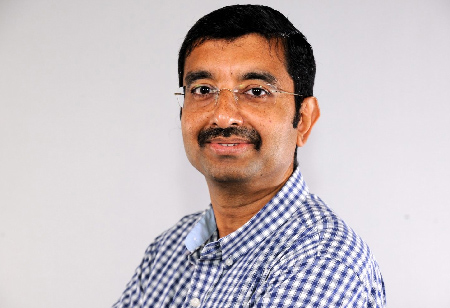
Digital Solutions Unraveling the Challenges of Underserved Communities


Venkat Padmanabhan, Managing Director, Microsoft Research India, 0
Artificial intelligence (AI) has emerged as a transformative force that carries significant implications for society, offering considerable advantages for all individuals. AI possesses significant possibilities to facilitate impactful transformation, particularly in sectors like healthcare, education, and accessibility. Nevertheless, for these advancements to genuinely serve the community, they need to be developed with purpose and inclusivity and backed by sustainable collaborations. In an exclusive interview with CEO Insights, Venkat Padmanabhan, Managing Director, Microsoft Research India, shares insights on how AI meets the needs of everyone, including underserved communities. This conversation took place at the launch of A4I – the AI Innovation and Inclusion Initiative, hosted by Microsoft and the International Institute of Information Technology Bangalore (IIIT-B), a collaborative effort aimed at advancing the use of artificial intelligence (AI) to create inclusive, impactful, and scalable solutions for underserved communities.
How will A4I guarantee that AI solutions, such as Shiksha Copilot and ASHA Saheli, can be tailored to fit the needs of our nation?
We have been researching in India for two decades, allowing us to truly immerse ourselves in the ecosystem. Our projects are consistently driven by issues inspired by the ecosystem and the collaborative environments within Geosystems. Thus, when we create solutions, they are firmly rooted in the specific context. The second point I want to emphasize is that with the A4I launch, we are encountering a transformative technology. Until now, software has always existed; you could develop tailored software for various
needs, but it requires intentional patience to construct it based on user profiles and contexts. However, with A4I, we now have a technology that I believe has limitless potential. By utilizing foundational models—such as those large models—along with minimal data or specific prompts and context, we can achieve great outcomes.
Given our diverse linguistic, cultural and societal backgrounds, how are you implementing AI solutions in India?
Let me give you an example. We have developed Copilot that harnesses Microsoft’s AI and GPT models, enabling us to digest the Karnataka state curriculum in English as input. Consequently, it can generate lesson plans that adhere to the curriculum requirements. We are not merely taking calendars or resources from different states or languages; we are focused exclusively on processing the curriculum data from a particular state. This approach embodies our philosophy of being deeply entrenched in context, combined with the immense power of AI.
What kind of metrics or indicators will A4I use to measure the societal impact and success of its AI-driven initiatives in fields like healthcare, education, and accessibility over time?
As we reach more users, the outcomes and the depth of benefits are important. For instance, in the context of education, many teachers are utilizing interaction as a short-term metric. Over time, we aim to observe improvements in education where the A4I outcomes are accessible to the students and teachers. Therefore, I believe we should focus on metrics in the near future.
Also Read: Digital Technologies Are Dawning a New Era in the Education Sector
What does leadership mean to you in this technology era?
According to me, the size of the team is crucial, and it's essential to understand that technology is constantly evolving and rapidly changing. Therefore, everyone must embrace innovation. The methods we employed last year or even five years ago might not be applicable anymore. Thus, I believe that effective leadership involves being receptive to change and continuously innovating. The size of the team depends on the needs at hand. A larger team may be necessary to accomplish certain tasks.
I believe that effective leadership involves being receptive to change and continuously innovating
Given our diverse linguistic, cultural and societal backgrounds, how are you implementing AI solutions in India?
Let me give you an example. We have developed Copilot that harnesses Microsoft’s AI and GPT models, enabling us to digest the Karnataka state curriculum in English as input. Consequently, it can generate lesson plans that adhere to the curriculum requirements. We are not merely taking calendars or resources from different states or languages; we are focused exclusively on processing the curriculum data from a particular state. This approach embodies our philosophy of being deeply entrenched in context, combined with the immense power of AI.
What kind of metrics or indicators will A4I use to measure the societal impact and success of its AI-driven initiatives in fields like healthcare, education, and accessibility over time?
As we reach more users, the outcomes and the depth of benefits are important. For instance, in the context of education, many teachers are utilizing interaction as a short-term metric. Over time, we aim to observe improvements in education where the A4I outcomes are accessible to the students and teachers. Therefore, I believe we should focus on metrics in the near future.
Also Read: Digital Technologies Are Dawning a New Era in the Education Sector
What does leadership mean to you in this technology era?
According to me, the size of the team is crucial, and it's essential to understand that technology is constantly evolving and rapidly changing. Therefore, everyone must embrace innovation. The methods we employed last year or even five years ago might not be applicable anymore. Thus, I believe that effective leadership involves being receptive to change and continuously innovating. The size of the team depends on the needs at hand. A larger team may be necessary to accomplish certain tasks.